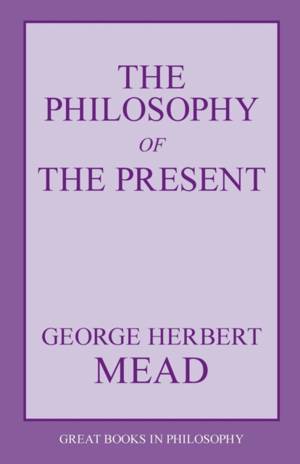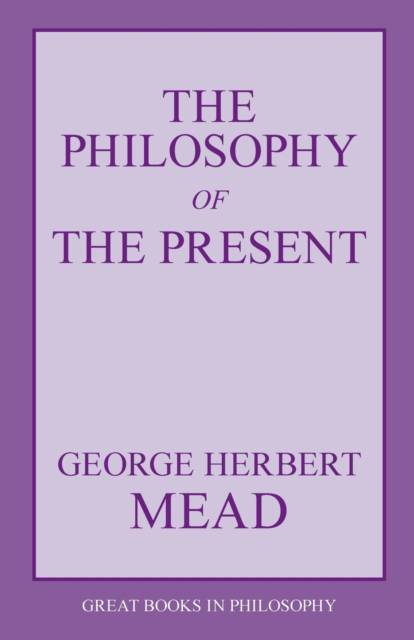
Bedankt voor het vertrouwen het afgelopen jaar! Om jou te bedanken bieden we GRATIS verzending (in België) aan op alles gedurende de hele maand januari.
- Afhalen na 1 uur in een winkel met voorraad
- In januari gratis thuislevering in België
- Ruim aanbod met 7 miljoen producten
Bedankt voor het vertrouwen het afgelopen jaar! Om jou te bedanken bieden we GRATIS verzending (in België) aan op alles gedurende de hele maand januari.
- Afhalen na 1 uur in een winkel met voorraad
- In januari gratis thuislevering in België
- Ruim aanbod met 7 miljoen producten
Zoeken
€ 24,45
+ 48 punten
Omschrijving
George Herbert Mead (1863-1931) had a powerful influence on the development of American pragmatism in the twentieth century. He also had a strong impact on the social sciences. This classic book represents Mead's philosophy of experience, so central to his outlook.The present as unique experience is the focus of this deep analysis of the basic structure of temporality and consciousness. Mead emphasizes the novel character of both the present and the past. Though science is predicated on the assumption that the present is predictable based on a thorough knowledge of the past, the experience of the present, says Mead, is an utterly unique moment comparable to no other, and when it is past the novel character of that unique experience is irrevocable.The emergence of novelty within the perceived rational order of reality is the crux of the problem that Mead explores. The present, in his words, is "the emergent event . . . something which is more than the processes that have led up to it and which by its change, continuance, or disappearance, adds to later passages a content they would not otherwise have possessed." The present as "the seat of reality" heavily conditions our retrospective view of the past as much as it helps to shape the future. The novelty of every present experience causes us to reconstruct our preceding experiences to make sense of the past, which is naturally assumed to be the main cause of what we presently experience. Our perspective on reality is thus relative to the conditioning of each new event and it changes continuously as the effects of the present shift our view of the past and future.This emphasis on the integrative, holistic nature of reality, in which everything past, present, and future is a condition of everything else, makes Mead's philosophy highly relevant to today's scientific picture of a quantum universe, where chance and probability play a role in the emergence of reality. Also of great interest is the way in which he extends his basic analysis of temporal-spatial reality to the emergence of mind and consciousness as a natural development of the evolutionary process.This stimulating and provocative work attests to John Dewey's praise of Mead as "the most original mind in philosophy in America" of his generation.
Specificaties
Betrokkenen
- Auteur(s):
- Uitgeverij:
Inhoud
- Aantal bladzijden:
- 202
- Taal:
- Engels
- Reeks:
Eigenschappen
- Productcode (EAN):
- 9781573929486
- Verschijningsdatum:
- 1/01/2002
- Uitvoering:
- Paperback
- Formaat:
- Trade paperback (VS)
- Afmetingen:
- 138 mm x 213 mm
- Gewicht:
- 235 g

Alleen bij Standaard Boekhandel
+ 48 punten op je klantenkaart van Standaard Boekhandel
Beoordelingen
We publiceren alleen reviews die voldoen aan de voorwaarden voor reviews. Bekijk onze voorwaarden voor reviews.









